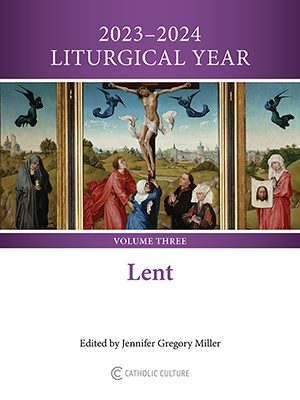The proverbs of Henri de Lubac
By Thomas V. Mirus ( bio - articles - email ) | Dec 10, 2014 | In Reviews
Henri de Lubac (1896-1991), a French Jesuit priest, is widely regarded as the most influential faithful theologian of the twentieth century. De Lubac is most known for his insistence that theologians must escape from the formulaic theology of the Thomist schools and return to the sources. In French, this was called resourcement, the importance of rooting Catholic theology in Scripture and the Fathers instead of starting with highly-developed—and very questionable—contemporary theological systems.
De Lubac also proved that the regnant contemporary Thomism had misread St. Thomas in proposing that there was a state of pure nature, in which man was created, such that his supernatural end was not at all reflected in his natural being. This thesis was advanced in the famous work Surnaturel (Supernatural), which proved that the natural and supernatural orders are not completely separate, and that man is ordered from the first to the vision of God, and so not even his natural ends can be considered apart from this reality.
Finally, de Lubac insisted that theology must take into account the Modernist insight that the Church and Catholic thought participate in and are influenced by human culture, without falling into the Modernist errors that the human perception of truth cannot transcend culture and that Catholic teaching is culturally-determined and must be changed from age to age.
Because of the influence of the established Thomist schools as a kind of theological establishment in Rome, de Lubac and other similar theologians operated under a cloud of suspicion between about 1950 and 1958. However, his profound contribution to Catholic theology has been recognized by every Pope from John XXIII to the present. He played an important role at the Second Vatican Council and was named a Cardinal in 1983.
In addition to his more systematic works, de Lubac wrote multiple collections of short, piercing insights that could almost be called proverbs. The first three quotes below are from Paradoxes of Faith, and the fourth is from the posthumously published More Paradoxes.
1.
If you do not live, think, and suffer with the men of your time, as one of them, in vain will you pretend, when the moment comes to speak to them, to adapt your language to their ear.
'Know the moderns in order to answer their difficulties and their expectations.' A touching intention. But this way of projecting the 'moderns' into an objective concept, of separating oneself from them to consider them from the outside, makes this good will useless.
2.
He who wants to have solutions for everything, must give up reflection, so as to have them ready made. But in that case they will not really be solutions for anything.
3.
There is nothing more demanding than the taste for mediocrity. Beneath its ever moderate appearance there is nothing more intemperate; nothing surer in its instinct; nothing more pitiless in its refusals. It suffers no greatness, shows beauty no mercy.
4.
'We confine ourselves,' says this prelate, 'to Vatican II, which is for us the authentic interpretation of the Gospel.' Some great ‘Thomists’ once spoke that way: With the Summa, they had the Gospel in hand, having finally arrived at its perfection. No more need of the evangelists or Paul or the Fathers; they even had to be avoided as dangerous; any doctor prior to Thomas smelled of heterodoxy. That was a betrayal of Saint Thomas; it is today a betrayal of Vatican II. And there is worse in store.
All comments are moderated. To lighten our editing burden, only current donors are allowed to Sound Off. If you are a current donor, log in to see the comment form; otherwise please support our work, and Sound Off!
-
Posted by: jalsardl5053 -
Jan. 31, 2017 7:54 PM ET USA
Upon reading her essay, I find it a bit too one sided. She fails to consider, much less develop, the male point of view on abortion. Her brief mentionings of the male are essentially dismissive in character. The thought that she, like so many, were/are taken in by Bill Clinton "Abortion should not only be safe and legal, it should be rare." is refreshing. We can only pray that the young people being suckered in by Planned Parenthood's grim hold on the campus will wake up to the lie of it sooner.
-
Posted by: gary.brisebois1104 -
Dec. 12, 2014 7:28 PM ET USA
Thanks for this! But you leave out the persecution (it was much worse than "suspicion") de Lubac endured under Pius XII and Garrigou-Lagrange.
-
Posted by: koinonia -
Dec. 11, 2014 7:52 AM ET USA
Centuries ago, not only did St. Catherine exhort pontiffs, she threw herself in service among the plague victims in Siena (50% mortality) without the least of concerns. She knew her world as did so many saints through history who understood that by cooperating with grace and growing in virtue they could cooperate in cultivating Our Lord's vineyard. There is a universal language in their communication that will always impact the hearts of "men of good will." It's bringing Christ to others.









